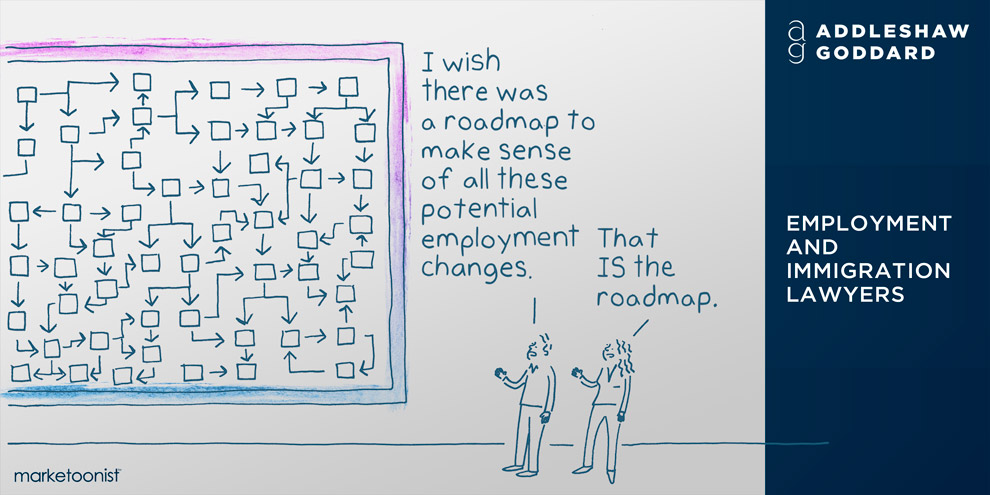What is new?
The Act of 26 September 2025 to amend the Labour Code and certain other acts, which revises the rules for calculating employment tenure, was signed by the President of the Republic of Poland. After the Act comes into force, the labour market will face changes which not all employers may be prepared for – especially in the context of the proposed increase of the powers of the inspectors of National Labour Inspectorate (PIP) regarding the reclassification into employment relationships. The amendment concerning the rules of calculation of employment tenure will ensure that periods previously unrecognised will be included. This is expected to result in a range of entitlements that were previously available only in connection with the history of employment based on an employment contract.
Which periods will be included in the employment tenure?
Among the periods that will be included in the employment tenure under certain conditions are, among others:
- conducting non-agricultural business activity by a natural person (as well as the period of being a cooperating person with a person conducting such activity – namely individuals who live in a shared household with given persons and assist in conducting of their activity) – including situations when the entrepreneur benefits from the so-called ‘start relief’,
- the period of performing mandate contracts, contracts for the provision of services, and agency contracts (as well as the period of being a cooperating person with such contractors),
- membership in agricultural production cooperatives and agricultural clubs,
- a documented period of gainful work abroad on a basis other than an employment relationship, and
- the period of suspension of business activity by a person conducting non-agricultural business activity for the purpose of providing personal care for a child, as well as the period during which a cooperating person provides personal care for a child.
Procedures
The new regulations introduce detailed rules for confirming the aforementioned periods. A key role will be played by certificates issued by the Social Insurance Institution (ZUS) at the request of employees, which will confirm the fact of being subject to or paying contributions for social insurance during these periods (pension and disability and/or accident insurance) or the fact of being registered for health insurance (in the case of the so-called ‘start relief’ for entrepreneurs). There are statutory exceptions where, despite not being subject to pension and disability insurance, a given period of employment will still be included in the employment tenure. For instance: students employed under a contract of mandate (or similar) until reaching the age of 26, individuals exempted from the obligation to pay social insurance contributions as part of support for economic participants affected by the COVID-19 pandemic, or exemptions from paying pension and disability insurance contributions for individuals conducting non-agricultural business activity after exceeding, in a given calendar year, the amount of thirty projected average monthly salaries in the national economy for the given calendar year. If ZUS would be unable to issue the aforementioned certificate, the employee will be able to present their own documentation, e.g. a proof of engagement under a mandate contract for students until the age of 26. The overlap of tenure periods will not result in a longer employment tenure – in accordance with the documentation presented by the employee, the more advantageous among those periods will be counted towards employment tenure.
Doubts and practical implications
In terms of documenting foreign work experience, the broad concept of “gainful work”, that is not an employment relationship, may prove problematic. However, any document that credibly confirms gainful work for a foreign employer shall be sufficeint. Employers will have to verify such documentation on an ongoing basis depending on the circumstances of the specific employment history, and will not be able to indicate top-down an exhaustive list of possible documents.
New rules will bring benefits for the employees, for example: a higher amount of annual leave, a longer notice period for termination of employment, higher severance pay in the event of termination of the employment relationship, as well as, if provided for in company regulations, entitlement to a length-of-service allowance, a jubilee award, or other bonuses/benefits that depend on a specific period of service. For employers planning redundancies in 2026, this may mean an increase in costs. Furthermore, employees with longer employment tenure will meet the requirements regarding professional experience, which will open up new opportunities for promotion (especially in the public sector or regulated professions) and access to more attractive job offers. The status of individuals employed under civil law contracts or those conducting business activity who do not take up employment under an employment contract will not change – they will not acquire the right to include their previous periods of work in their engagement tenure.
Since when?
The Act is to come into force in two stages: on 1 January 2026 for the public sector, and from the first day of the month following six months after its publication in the Journal of Laws for the private sector. The implementation of the changes will not be automatic. The employee will have 24 months from the date the Act comes into force to present their current employer with documents confirming their employment tenure – if such tenure is not documented, the entitlements will not be granted. Employers should prepare for the fact that employees may submit documents throughout the calendar year.
What needs to be done?
Before the changes come into force, employers will also need to adapt their internal regulations, such as collective bargaining agreements, work and remuneration regulations, or employment contracts, to the new requirements. Such internal documents may contain a range of multipliers based on company-specific or general employment tenure, which may then require revision or the creation of financial reserves for increased individual entitlements.
Could one call the Act a revolution? It may be an overstatement, however, its entry into force will certainly bring beneficial changes for individuals who, after a period of self-employment or employment under civil law contracts, take up employment based on employment contracts.




